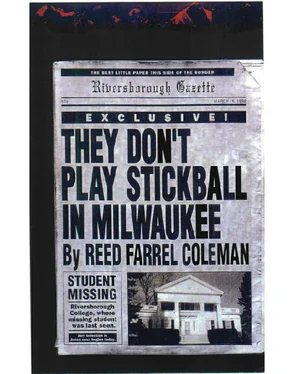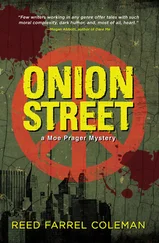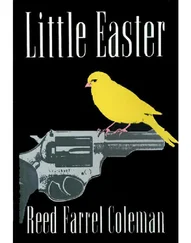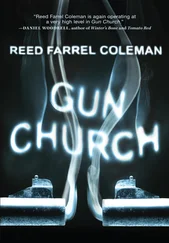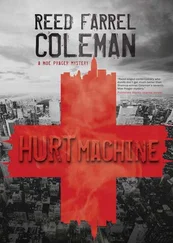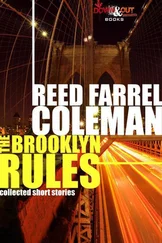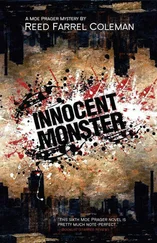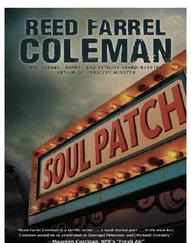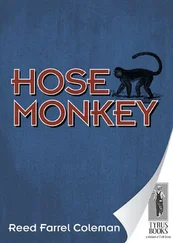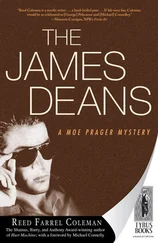Reed Coleman - They Don't Play Stickball in Milwaukee
Здесь есть возможность читать онлайн «Reed Coleman - They Don't Play Stickball in Milwaukee» весь текст электронной книги совершенно бесплатно (целиком полную версию без сокращений). В некоторых случаях можно слушать аудио, скачать через торрент в формате fb2 и присутствует краткое содержание. Год выпуска: 0101, ISBN: 0101, Издательство: The Permanent Press, Жанр: Криминальный детектив, на английском языке. Описание произведения, (предисловие) а так же отзывы посетителей доступны на портале библиотеки ЛибКат.
- Название:They Don't Play Stickball in Milwaukee
- Автор:
- Издательство:The Permanent Press
- Жанр:
- Год:0101
- ISBN:1579622984
- Рейтинг книги:5 / 5. Голосов: 1
-
Избранное:Добавить в избранное
- Отзывы:
-
Ваша оценка:
- 100
- 1
- 2
- 3
- 4
- 5
They Don't Play Stickball in Milwaukee: краткое содержание, описание и аннотация
Предлагаем к чтению аннотацию, описание, краткое содержание или предисловие (зависит от того, что написал сам автор книги «They Don't Play Stickball in Milwaukee»). Если вы не нашли необходимую информацию о книге — напишите в комментариях, мы постараемся отыскать её.
They Don't Play Stickball in Milwaukee — читать онлайн бесплатно полную книгу (весь текст) целиком
Ниже представлен текст книги, разбитый по страницам. Система сохранения места последней прочитанной страницы, позволяет с удобством читать онлайн бесплатно книгу «They Don't Play Stickball in Milwaukee», без необходимости каждый раз заново искать на чём Вы остановились. Поставьте закладку, и сможете в любой момент перейти на страницу, на которой закончили чтение.
Интервал:
Закладка:
He poured a few drops into his coffee before abandoning that idea. Instead, he removed the pouring spout and pressed his lips around the bottle mouth. MacClough tilted his head back and the bottle up. With a quarter bottle in him, he stopped to look at his hand. The shaking hadn’t stopped, but he no longer cared. The Irish had done its job.
Pillow
Harry Klein had all the time in the world to sleep, he just never could. If it wasn’t the pain that kept him up, it was the anticipation. He sat back in bed against a stack of pillows, the room black but for the glow of the television. His eyes were aimed in the direction of the glow, but he wasn’t watching. Harry’s right thumb pressed the channel button every two seconds. Something flashed onto the screen, something flashed off the screen. He could feel the first hints of pain in his left hip. After a lifetime of pain, Harry had gotten good at recognizing the initial onset. It was sort of like knowing you’re going to sneeze, except what Harry was feeling bore no resemblance to that tickley feeling in your nose.
He started to sweat, feeling to see if his pain patch was in place. It was. At times, he could swear the druggist had gotten it wrong and given him nicotine patches. Switching the remote to his left hand, he reached across his body fumbling for his pills. Remarkably, he opened the bottle with one hand and popped a capsule in his mouth. Swallowing was reflexive. Harry had gotten past the need for water decades ago. During this whole time, his left thumb continued clicking through the channels.
Harry braced himself. He knew the hints would become twinges before the pills and patches did their work. But tonight the bracing did not help. The twinges got angry, louder, transforming themselves into waves. Harry couldn’t take the waves. When he was younger, maybe. When his wife was alive and the kids lived at home, he could take it. Not anymore. He tried remembering when he had last changed his patch. He couldn’t remember. His left thumb kept clicking.
His heart was pounding and he had sweated through the bedding now. He yanked off the old patch and replaced it, tearing the package open with his teeth. His left thumb kept clicking. The waves slowed down, but his panic had not. His breathing became rapid, erratic. He began gasping for air. He was drowning. His left thumb kept clicking. Finally, his breathing slowed and steadied. He needed a pill, he thought. It had been hours since the last pill. It seemed like hours. The hours ran together for Harry these days. He managed to get a second pill between his lips, but it did not go down his panic-dried throat so easily. His left thumb kept clicking.
The waves were gone, the twinges forgotten, even the hints were faded. Harry felt he could almost sleep. He passed the remote back into his right hand, but his right thumb was disinterested. Harry’s lids flickered. He fought the urge to close them. Harry was afraid of sleep, but the fear was weak in him tonight. He clicked off the television and let his eyes close. Harry rolled over and let a pillow be his wife. In this twilight time, he laughed to himself that his wife had never been so thin as a pillow. It was good to pretend, though. And as he drifted off, Harry thought he could hear her call to him that she would protect him from the waves forever. With that promise, Harry’s twilight was ended.
They were careless people, Tom and Daisy-they smashed up things and creatures and then retreated back into their money or vast carelessness, or whatever it was that kept them together, and let other people clean up the mess they had made.
— F. Scott Fitzgerald, The Great Gatsby
Damaged Goods
I turned to look over my left shoulder at MacClough seated two pews back. I didn’t think it possible for a man to age so much in a month. He seemed thicker around the middle than I remembered. Four weeks hadn’t lightened the blue of his eyes any, but that mischievous sparkle, though not gone, seemed dimmer somehow, smudged like old wax. His golden, surfer-dude hair had gone gray. Maybe it had been graying for years and I’d been blinded by close proximity. Maybe I hadn’t wanted to see.
Johnny noticed my stare. His sad smile and signature wink told me so. They were gestures meant not to distract, but to acknowledge and give comfort. Sleight of hand was not MacClough’s way. His wink let me know that he too had seen in the mirror the changes in him I was only noticing now. The smile. . Well, the smile said many things. It said he knew I was hurting and that showing it was all right with him. But beyond that, it seemed to say that a funeral was no place to judge a man by his looks or to judge a man at all.
He was right, of course. Often, the only person at a funeral who seems at ease with him or herself is the body in the box. And today, not even that was true. My father was a stranger to me and, if he could have seen what they had done to his face, he would have felt a stranger to himself as well. It wasn’t the vaudeville greasepaint-powders and rouges aren’t, when all is said and done, very good understudies for coursing blood and muscle tone-that made him so alien. On the contrary, as he’d always had a maudlin love of clowns, the makeup was perversely appropriate. It was that they had shaved off his moustache. They shouldn’t have done that. I didn’t know him without that moustache.
My first impulse was anger. Anger is always my first impulse. It was my dad’s legacy, anger. Anger is like an interesting mixture of black paint and acid. It blots out, erodes anything already on the canvas or on the pallet or in the heart. First, I wanted to slap the funeral directer: “For chrissakes! Who let the undertaker shave him?”
I slapped no one. I said nothing. Cowardice is the other half of the legacy.
Anger then turned to my brothers. How could they let him be shaved? But no one had asked their permission-“Excuse me, Mr. Klein, but would you like your dad’s hair done in a shag cut? And that moustache. . If you ask me, it’s got to go!” I guess my brothers assumed, as I would have, that the whole world-okay, maybe not the whole world, but all of Brooklyn for sure-knew that Harry Klein always had a moustache. Always!
Finally, I directed my anger to where it would have gone anyway. I let it tear at me. Who was I to rage at anyone else? Where had I been when that twenty-five-cent razor was making a stranger of my dad? I’ll tell you where I was. I was pitching, man, pitching. Four weeks in Los Angeles had schooled me in things the streets of Brooklyn never could. In Brooklyn, you learn to watch your back. In L.A., your back is the least of your worries.
Hollywood’d been my agent’s idea: “The numbers on the book aren’t so hot, but the artsy-fartsy types out there love it. You’ll throw in a Latina partner for your detective and up the body count a little. . Don’t worry.”
He didn’t let the fact that there was no screenplay bother him: “Who needs a screenplay? No screenplay means you’re more flexible. You’re not invested. They like flexible. Don’t worry.”
I should have worried. The first week we were out there, pitching my idea meant making a competently written detective novel with an arcane plot and surprise ending sound like the best investment since Microsoft. In week two it meant begging with dignity. By the third week it was just begging. By week four I’d taken to farting during meetings to get their attention. It was at the last of these performances that I’d gotten the call to come home. Suddenly, their attention mattered very little.
I nodded to MacClough and looked along the pew at my family. I took John’s unspoken advice, trying not to judge them. My sisters-in-law seemed shaken down to their shoes. My brothers, on the other hand, appeared nearly catatonic. It was as if both their faces had been coated in a quick-setting mortar, color-matached perfectly to their skins. But when you gazed closely enough, cracks showed in the plaster and there was an unmistakable redness in the folds of their eyes. Sometimes, tears themselves are unnecessary. My nieces and nephews were appropriately confused.
Читать дальшеИнтервал:
Закладка:
Похожие книги на «They Don't Play Stickball in Milwaukee»
Представляем Вашему вниманию похожие книги на «They Don't Play Stickball in Milwaukee» списком для выбора. Мы отобрали схожую по названию и смыслу литературу в надежде предоставить читателям больше вариантов отыскать новые, интересные, ещё непрочитанные произведения.
Обсуждение, отзывы о книге «They Don't Play Stickball in Milwaukee» и просто собственные мнения читателей. Оставьте ваши комментарии, напишите, что Вы думаете о произведении, его смысле или главных героях. Укажите что конкретно понравилось, а что нет, и почему Вы так считаете.
